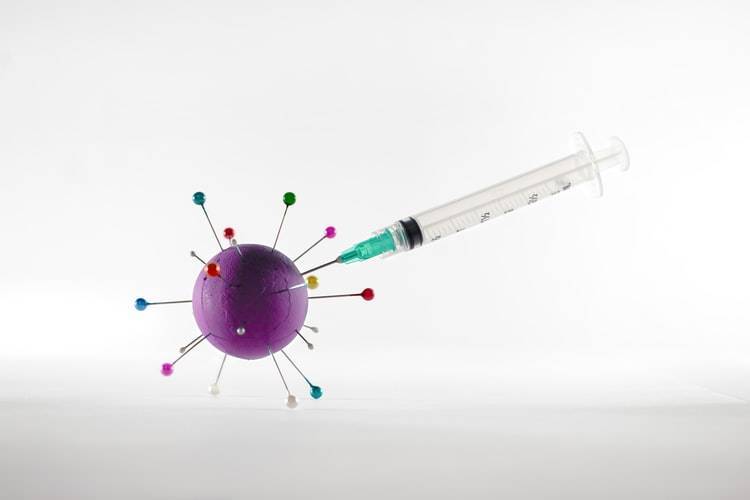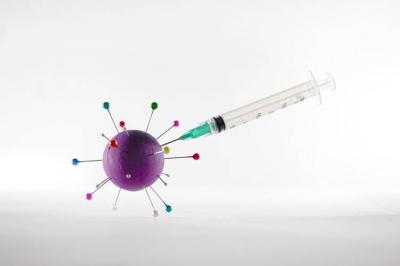The sudden rise in COVID-19 cases following the emergence of the highly transmissible Delta variant has raised new health concerns, as well as questions about the safety and speed of reopening the economy, even in areas with high vaccination rates, such as the United Kingdom. Here, Sam Fadhli—an analyst at Bloomberg Intelligence covering the pharmaceutical sector—addresses questions related to the Delta variant and the potential threat it poses.
1. **Has the Delta variant led to an increase in COVID-19 cases among vaccinated individuals?**
The issue is complex due to definitional matters. Vaccines were never 100% effective against infections even before Delta emerged. In trials for the Pfizer-BioNTech and Moderna vaccines, for example, efficacy was over 90%, meaning very few people contracted the virus. However, vaccinated individuals had a 100% protection rate against severe illness or hospitalization in these trials. The Delta variant has characteristics that allow it a better chance of causing infections, meaning it can evade some of the protection from antibodies. Nonetheless, vaccinated individuals remain much less likely to suffer severe infections; if they do, their symptoms usually resolve more quickly. Nevertheless, people will still die from COVID-19 even if they are vaccinated, but in much lower numbers than those unvaccinated.
2. **What makes the Delta variant a threat, and how does it operate?**
The Delta variant has developed mutations that make it more harmful than other strains. It is capable of infecting cells more efficiently, in part due to its ability to somewhat evade antibodies formed in previously infected or vaccinated individuals. Once inside the cells, it is better positioned to replicate. This is confirmed by finding significantly higher viral loads in nasal swabs from Delta-infected individuals compared to those recorded in the first wave of the pandemic. This could stem from a process called "syncytium formation," where infected cells merge with healthy ones, aiding the virus in hiding from the immune system and replicating faster. The Delta variant seems to form larger clusters, increasing its chances of creating more infectious copies. A higher viral load means that an infected person may expel more virus particles during exhalation, thereby increasing the chances of transmission and enhancing the virus's "fitness."
3. **What are the risks of severe infection?**
We must be very cautious here; severe infections are not unexpected because we know vaccines are never 100% effective against infections. Variants can erode effectiveness over time, as the virus infects people via the lining of their airways—known as mucous membranes—which may not contain many vaccine-induced antibodies, allowing the virus a chance to infect humans. However, infection alone may not be a concern for vaccinated individuals.
4. **How severe are the cases of severe infection we are seeing? And how concerned should we be about populations with high vaccination rates experiencing more severe cases?**
Fortunately, we are not witnessing a pathogenic surge, meaning the effectiveness of vaccines against severe symptoms and hospitalizations remains very high, regardless of the specific variant. Note that if vaccinated individuals contract the virus, their immune systems will respond; symptoms may mirror those we are familiar with in other infections, such as headache, nasal congestion, muscle and joint pain. Individuals vary; some may have a much stronger antibody response than others, leading to different disease manifestations. Over time, reduced antibody levels in those who initially had a weaker immune response may lead to milder infections.
5. **Should mild cases of severe infection be a concern?**
Several issues are connected to this; one is that if you contract a mild infection, you could transmit it to an unprotected individual, although studies show that these infections are less transmissible in vaccinated individuals. There is also the risk of new viral mutations that could make the situation more favorable for infecting vaccinated individuals. However, this is less likely due to reduced viral replication and infection duration, which don’t allow enough time for new mutations to develop. A key question is whether vaccinated individuals with mild infections face the same risks of long-term COVID; this is the only risk I see in a world that accepts mild COVID infections as normal.
6. **Do infection risks increase depending on the vaccine received?**
Much of the available data on this is derived from lab tests that clarify many issues. This data suggests that mRNA-based vaccines are better than so-called adenovirus vaccines, such as those provided by AstraZeneca and Johnson & Johnson. Real-world data comparing matched groups of vaccinated and unvaccinated individuals currently indicate that the Pfizer-BioNTech vaccine is more effective at preventing mild infection from the Delta variant compared to AstraZeneca. This is based on research published in the UK. However, the Pfizer-BioNTech vaccine shows lower effectiveness in Israel according to health ministry reports, but more details are needed to understand the differences between the UK and Israel. I also believe we will find that the Johnson & Johnson vaccine is less effective against mild infection, but similar analyses indicate it is comparably effective against severe infections and hospitalizations.
7. **What precautions should fully vaccinated individuals take recognizing the Delta variant as a threat?**
I can tell you what I do: I wear two masks when going to public places, like supermarkets and shopping malls, where I'm unaware of individuals' vaccination statuses. If I have friends nearby, I make sure I know who has received the vaccine and who has not, deciding based on this whether we go indoors or stay outdoors. I still avoid dining inside restaurants and stay away from bars. Recently, I flew and wore two masks, avoiding crowded places as much as possible.
8. **Many seniors were among the first vaccinated in the US; should we be concerned about declining vaccine protection levels? Does the Delta variant pose greater risks to this population?**
We know that mRNA vaccines have been equally effective against earlier virus strains, regardless of the age of the vaccine recipient. These vaccines have also prevented severe infections to the same degree. What remains unknown is how the Delta variant interacts with the elderly and how their immunity develops over time; thus, caution should be exercised as we discover this.
9. **Is it time to begin administering booster doses against the Delta variant?**
I believe we need to be prepared to do so, especially if we continue to manage our lives based on moderate infection rates. We should prepare for both Delta and Beta, the variant first discovered in South Africa, but I’m not sure whether the virus's evolution is finished. Do we need booster doses now? I don’t think so. But should we have vaccines on demand in case of anything unexpected? Yes, I believe we should.
10. **What about children?**
Children under 12 pose a complicated issue, as perceptions suggest they do not contract severe infections, which is somewhat true, but some are prone to really bad cases. In certain instances, this can evolve into a condition referred to as multisystem inflammatory syndrome. The challenge is that much of the data concerning the risks to children is based on a time when lockdowns were enforced, and many were being taught at home. The Delta variant was not yet present, so we are at risk for increased cases when children return to school in September, often without wearing masks. Additionally, we face another issue with the resurgence of respiratory syncytial virus (RSV), which was significantly curtailed during the past 12 to 18 months due to lockdown measures and mask usage. RSV is typically a leading cause of hospitalization due to acute respiratory viral infections among infants, young children, and the elderly. Most infants are born with protective antibodies passed from their mothers, but this will not be the case for newborns, making them vulnerable to both RSV and COVID-19 simultaneously. We have no idea what this could mean for health outcomes.




